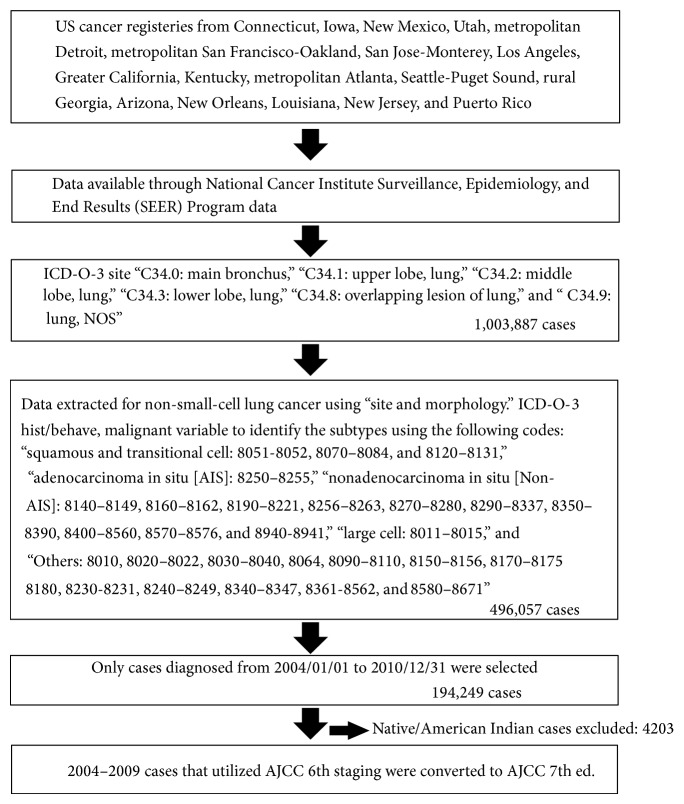居住在美国的亚太岛民的非小细胞肺癌临床病理特征和生存结果:一项SEER分析
IF 1.8
Q3 ONCOLOGY
引用次数: 8
摘要
背景。本研究的目的是根据不同的肿瘤特征和治疗方式,确定亚洲/太平洋岛民(API)非小细胞肺癌(NSCLC)的临床病理特征和生存结果的种族/民族差异。方法。SEER数据库从2004年到2010年确定了侵袭性NSCLC病例。变量包括美国癌症联合委员会(AJCC) 7期、肿瘤分级、肿瘤大小、组织学、年龄、婚姻状况、放疗、手术和不手术的原因。使用Kruskall-Wallis检验和Z检验来检验种族/民族和参照的非西班牙裔白人(NHW)之间的差异。采用多变量Cox比例分析确定AJCC各阶段疾病特异性生存(DSS)的预后意义权重。结果。与参考NHW相比,API在I期(HR: 0.78)、II期(HR: 0.79)和IV期(HR: 0.86)的DSS均有所改善(P < 0.01)。已婚、女性、AIS组织学、非美国出生均可改善预后(P < 0.01)。结论。我们已经证明API改善了早期和IV期NSCLC的生存率。需要进一步的研究来阐明生活方式和肿瘤生物学在这些差异中的作用。本文章由计算机程序翻译,如有差异,请以英文原文为准。

Non-Small-Cell Lung Cancer Clinicopathologic Features and Survival Outcomes in Asian Pacific Islanders Residing in the United States: A SEER Analysis.
Background. The objective of our study was to ascertain racial/ethnic disparities in Asian/Pacific Islanders (API) for non-small-cell lung cancer (NSCLC) clinicopathologic features and survival outcomes based on various tumor characteristics and treatment modalities. Method. SEER database identified invasive NSCLC cases from 2004 to 2010. Variables included American Joint Committee on Cancer (AJCC) stage 7, tumor grade, tumor size, histology, age, marital status, radiation, surgery, and reason for no surgery. The Kruskall-Wallis test and the Z test were used to examine differences between races/ethnicities and the referent, non-Hispanic white (NHW). Multivariate Cox proportional analyses were used to establish the weight of the prognostic significance contributing to disease-specific survival (DSS) in each AJCC stage. Result. Improved DSS was seen in API across stage I (HR: 0.78), stage II (HR: 0.79), and stage IV (HR: 0.86), respectively, compared to the referent NHW (P < 0.01). Prognosis was improved by being married, being female gender, AIS histology, and birth outside the US (P < 0.01). Conclusion. We have demonstrated improved survival among API in early stage and stage IV NSCLC. Further research is necessary to clarify the role of lifestyle and tumor biology for these differences.
求助全文
通过发布文献求助,成功后即可免费获取论文全文。
去求助
来源期刊

Journal of Cancer Epidemiology
ONCOLOGY-
CiteScore
4.00
自引率
0.00%
发文量
10
审稿时长
20 weeks
期刊介绍:
Journal of Cancer Epidemiology is a peer-reviewed, open access journal that publishes original research articles, review articles, case reports, and clinical studies in all areas of cancer epidemiology.
 求助内容:
求助内容: 应助结果提醒方式:
应助结果提醒方式:


